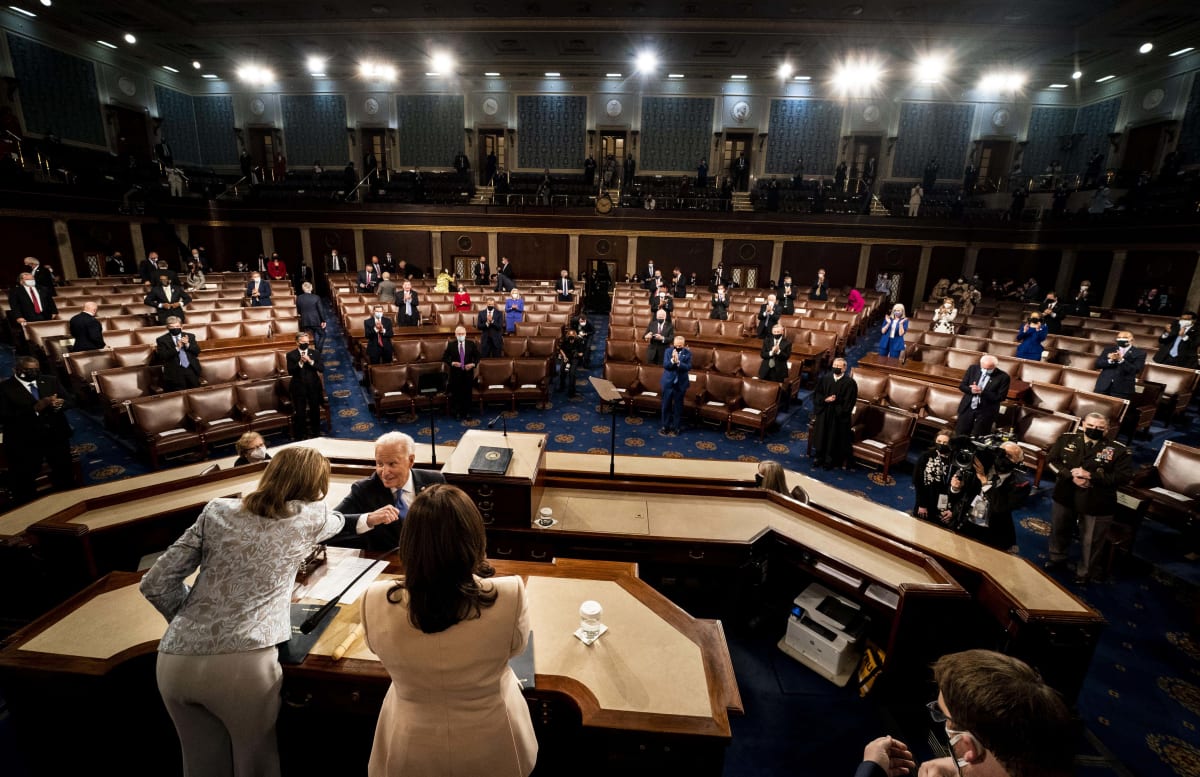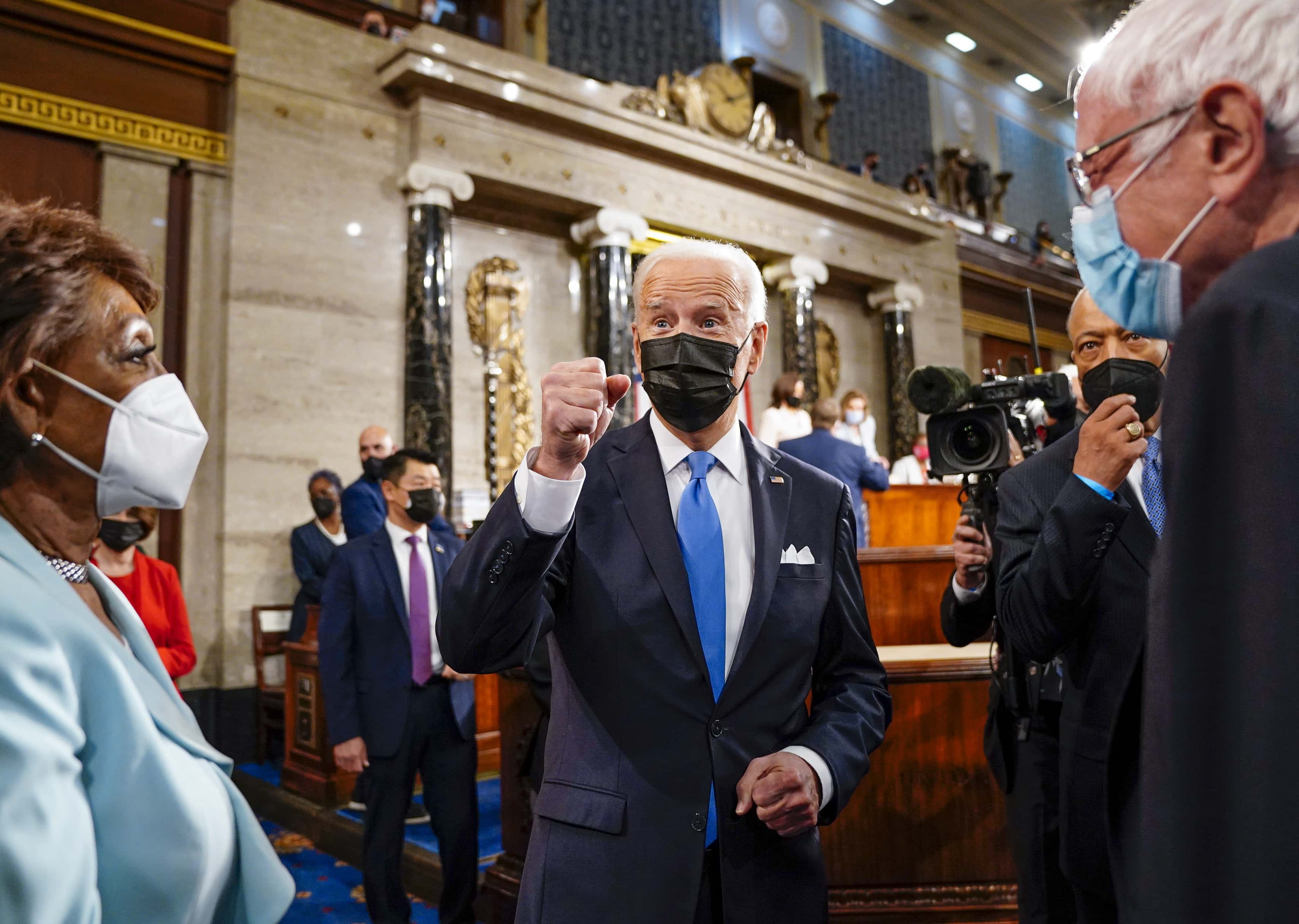Why no 'designated survivor' for Joe Biden's address to Congress? Tradition from Cold War broken amid pandemic

There was no "designated survivor" appointed on Wednesday, April 28, the night of President Joe Biden's first address to Congress. While the strange detail raised eyebrows among skeptics, it appears there's a reasonable explanation for not making the appointment in current circumstances.
“There does not need to be a designated survivor because the Cabinet will be watching from their offices or home, but they will not be joining him for the speech,” White House Press Secretary Jen Psaki said at a briefing prior to the address.
RELATED ARTICLES
What is a Designated Survivor?
When the President of the United States usually addresses the Congress, all the Cabinet members are in attendance except for one "designated survivor." According to USA Today, that person is a Cabinet official who is placed at a secure location in case a catastrophic event kills the president and other Cabinet members. The White House, however, did not choose a designated survivor for the address because attendance at the US Capitol was cut in half by the pandemic.
The tradition dates back to the Cold War, per the Constitution Center. The Presidential Succession Act of 1947 created a line of succession if the president dies or is incapacitated. According to the act, the first to take office would be the vice president, followed by the speaker of the House, and then the president pro tempore of the Senate.
The speech was attended by Vice President Kamala Harris, House Speaker Nancy Pelosi, Senate President Pro Tempore Patrick Leahy and Secretary of State Antony Blinken, leaving Treasury Secretary Janet Yellen as next in line of presidential succession in the event of a US Capitol disaster.

There have been instances in the past when a lower-ranking Cabinet member was selected to sit out the SOTU address, like former Interior Secretary David Bernhardt in 2020 and former Energy Secretary Rick Perry in 2019. However, this was the first time a "designated survivor" had not been appointed in decades.
In his address, Biden majorly touted his massive $1.9 trillion stimulus package, called the American Rescue Plan, claiming it would give underprivileged children a shot at a better life.
The president said, "Maybe most importantly, thanks to the American Rescue Plan, we’re on track to cut child poverty in America in half this year." As Biden made the statement, almost all the Democrats in the house stood up to applaud the announcement, but not a single Republican did.

MEAWW previously reported how former president Donald Trump's ex-aide Stephen Miller sparked outrage after calling Biden's Congress speech a "lifeless and dry address." Taking a jab at the 46th POTUS, Miller tweeted, "So far, this speech is written in the 'laundry list' style — the least inspired format for a congressional address." He further added: "It is striking just how tedious & unoriginal the rhetoric was in Biden’s speech. Also, no outreach, no bipartisanship, no surprises, no warmth — a lifeless and dry address."
It is striking just how tedious & unoriginal the rhetoric was in Biden’s speech. Also, no outreach, no bipartisanship, no surprises, no warmth — a lifeless and dry address.
— Stephen Miller (@StephenM) April 29, 2021
Miller's comments came after it was reported that a legal group founded by him has filed a lawsuit claiming Biden's American Rescue Plan discriminates against White farmers. Miller said the federal lawsuit brought by America First Legal — the group he founded with former Trump chief of staff Mark Meadows to challenge "the radical activist left" — "makes clear that it will defend MLK's vision, our Constitutional order, and the civil rights of all citizens".
The lawsuit alleges that “the Department of Agriculture interprets this phrase to include African Americans, Hispanics, Native Americans, Alaskan natives, Asian-Americans, and Pacific Islanders… but white farmers and ranchers are not included within the definition of 'socially disadvantaged farmers and ranchers', making them ineligible for aid under these federal programs."










